A sweet future for Australia’s biggest plant protein crop
With a showstopping flowerhead worthy of a wedding bouquet, sweet lupin cuts a fine figure across Western Australia’s wheatbelt. Despite its enviable protein content, lupin is still mostly consigned to stockfeed. Now, with the help of both CSIRO and Curtin University, WA-based regen food and ag company, Wide Open Agriculture, is on a mission to unlock the food potential of Australia’s biggest plant protein crop.
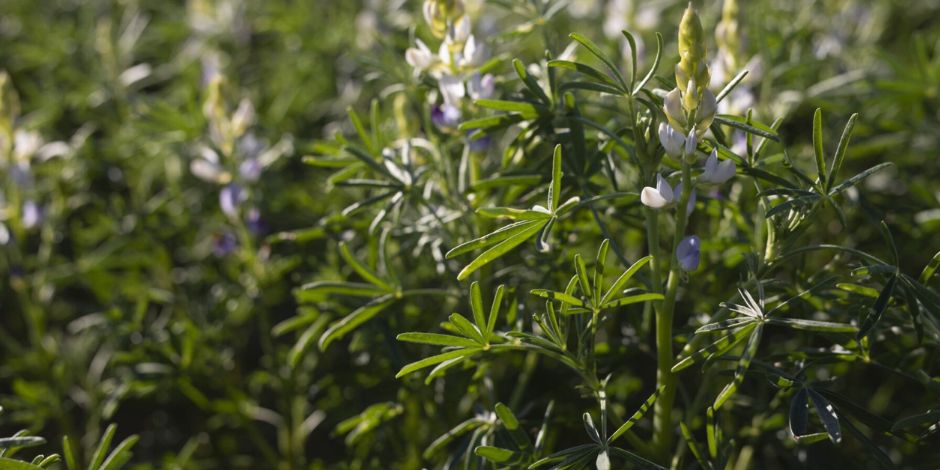
On paper, lupin leads the plant protein pack. A nitrogen-fixing legume with a protein content that rivals soy – yet far better adapted to low water environments – lupin delivers high fibre, low starch and fat, and a low glycaemic index (GI).
Consequently, there is rapidly growing interest from food and pharmaceutical industries globally, keen to pursue lupin as both an additional protein, and a salve to human health issues such as diabetes, cardiovascular disease, obesity, and cancer.
But with only 50 years of domestication behind it, some undesirable seed quality traits persist which – until now – have constrained both protein extraction and consumer acceptance.
Wide Open Agriculture (WOA) CEO Jay Albany explained, “Lupin is an amazing crop for restoring soil health, and we have a structural advantage in growing them. Year on year, WA (Western Australia) is amongst the top global producers – growing anywhere from 60 – 80% of global production.”
“But only 4% are consumed by humans; the rest goes into stockfeed.”
The WA-based ASX-listed regenerative food and farming company wants to change that, by harnessing novel food production technology that elevates lupin from sheep feed to high-value plant protein food products. And boosts both WA soils and farm balance sheets in the process.
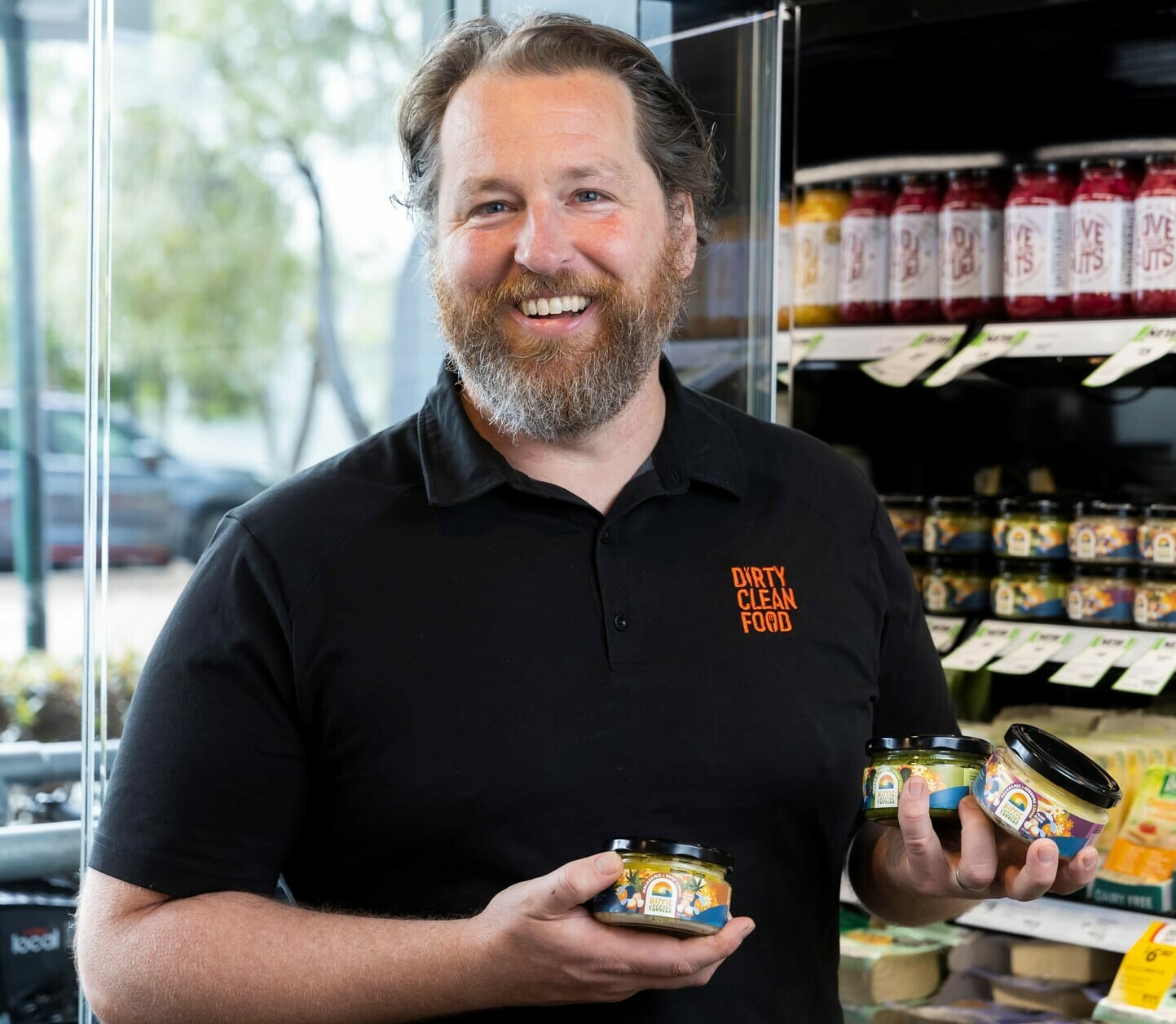
Jay Albany, CEO of Wide Open Agriculture.
Finger on the pulse yields new food protein
“Lupin yields extraordinarily good protein – if you can unlock it,” said Jay. But unlike the soy and pulses that dominate the plant protein food category, accessing lupin protein has largely eluded food manufacturers.”
A key partnership with WA’s Curtin University has enabled WOA to crack the lupin code, securing exclusive rights to develop and commercialise a world-first, cost-effective new technology that improves gelation and emulsification – key properties of interest to food manufacturers – while also neutralising lupin’s inherently bitter flavour.
“It is a good match: our company and Curtin University,” said Jay, noting shared objectives of enhancing sustainable food production, innovating solutions to the global protein deficit, and value-adding to WA farmers.
“Credit also goes to CSIRO,” added Jay. “The team at the CSIRO Food Innovation Centre was instrumental in helping us take the Curtin tech out of the lab and into pilot commercial-scale production of our ‘hero product’ – lupin protein isolate that we call ‘Buntine Protein(r).’”
Named after the WA wheatbelt town that’s home to WOA’s earliest lupin supplier, Buntine’s neutral colour and clean taste – combined with versatile functionality – opens up a host of food uses, from meat products and baked goods to egg replacements.
“But we’re most excited about lupin’s potential in the alternative dairy space,” explained Jay. “Foods like yoghurt and mayonnaise, milks and cheeses: products that sit on the palate in a particular way, where gelation will be really meaningful to food scientists in developing new products.”
The tech partnership with Curtin Uni puts WOA in an enviable position in a market segment where IP development and capital costs are high, supply is tight, and competition is strong.
“There’s been so much investment in plant proteins in the last decade, and a lot of competitive knowledge exists for crops like soy and pea. But this technology gives us the chance to compete on sustainability and nutrition with a new crop, harnessing our supply advantage, and using extraction technology that’s hard to replicate without the know-how we’ve built.”
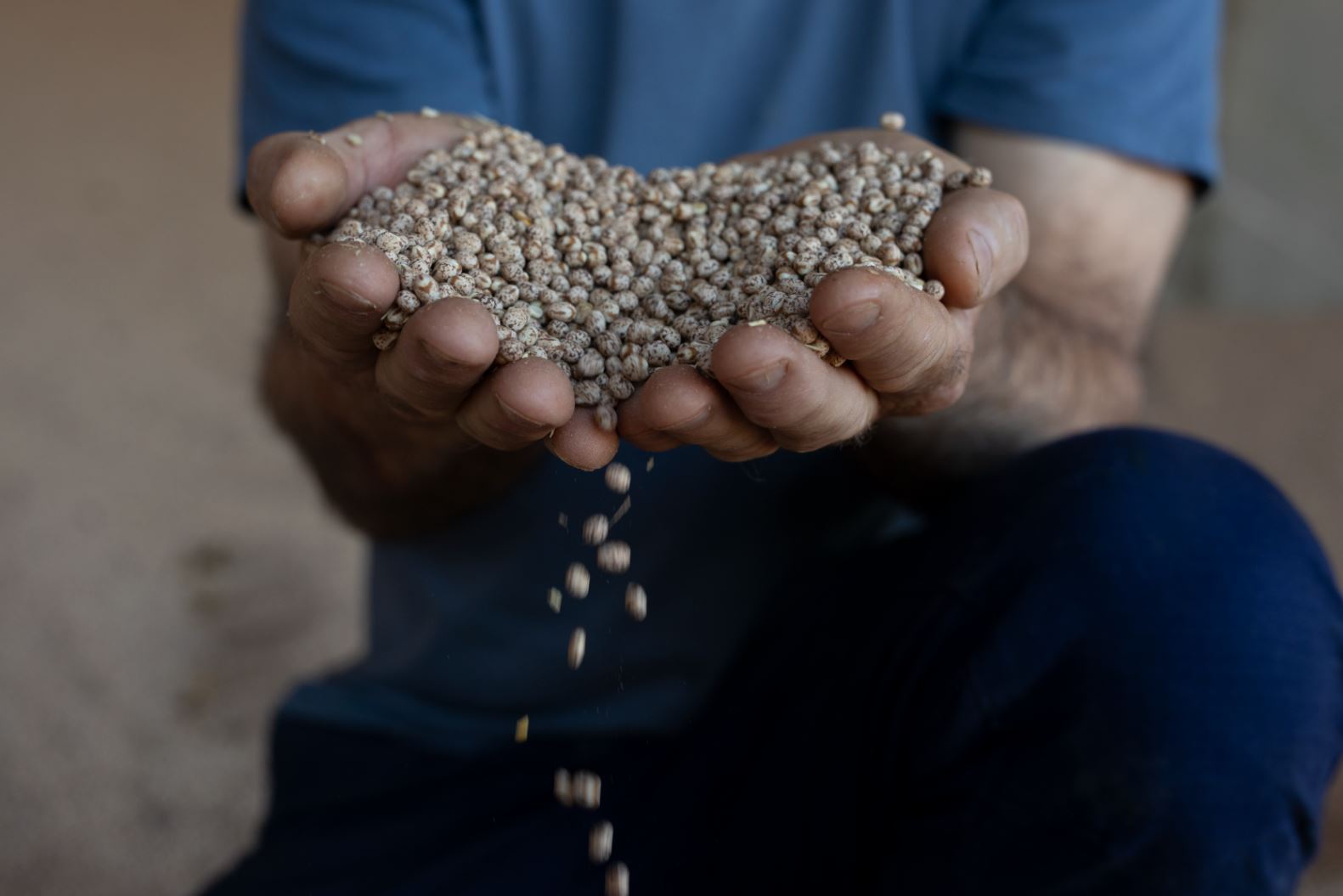
A partnership with CSIRO and Wide Open Agriculture has allowed them to crack the lupin code.
CSIRO on a mission to accelerate future protein supply
With another 2 billion people joining the planet by 2050, and a further 1.5 billion expected to move into Asia’s middle class, pressure is on protein producers to meet this demand. It’s a challenge so great that Australia’s national science agency, CSIRO, is throwing its weight behind solutions.
CSIRO’s Future Protein Mission Lead Dr Crispin Howitt explained, “We know existing production systems can’t grow to meet the new demand. We need new protein sources – and for Australia, lupin makes sense.”
“We’ve got strong skills around agronomy and breeding, and we’ve got quite an innovative food system. CSIRO’s goal is to catalyse the science industry around lupin to help grow that opportunity.”
The scaffolding supporting this objective is CSIRO’s Future Protein Mission, which seeks to leverage increasing global protein demand to create new animal, plant and novel Australian protein products and ingredients that earn an additional $10 billion in revenue by 2030.
For lupin, that means bringing the agency’s leadership and expertise to bear along the entire value chain. From the lupin processing project with WOA, to breeding for improved agronomic and seed quality traits with leading plant breeders like Australian Grain Technologies, CSIRO’s Future Protein Mission aims to catalyse a self-sustaining ecosystem for lupin protein in Australia.
“The area grown is half of what it was in the late 1990’s, but that’s mainly because canola is more profitable, and provides better options for weed management,” said Crispin.
“But the potential to scale production is already there. And if we get this right as a collective industry – working on the agronomy so it’s easier to grow; working on the seed quality to unlock lupin’s potential as a food source; and working on the processing to enhance value as a food product – then we can harness that potential and make a rapid impact on protein supply.”
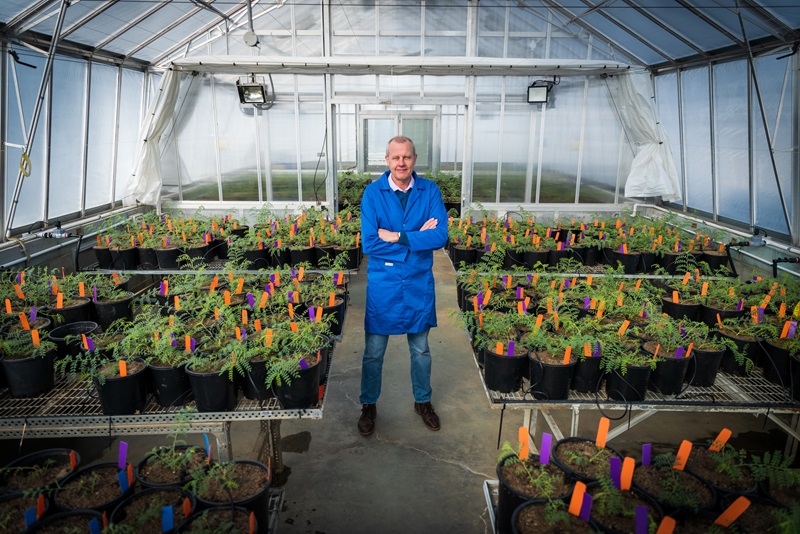
CSIRO’s Future Protein Mission Lead Dr Crispin Howitt. Image: CSIRO.
Supportive backers anchor Wide Open Agriculture through global alt protein shakeout
Jay credits a combination of smart decision-making, mission-driven investors, and luck as key to avoiding the investment bubble which has rationalised the complementary protein segment over the last 12-18 months.
“I learned a lot from working in the dot-com bubble in the US – where huge capital projects demanded huge growth, and encouraged irrational decision-making that made no sense outside of that high-pressure moment.”
“We want to be here in 25 years’ time, not only still in the game, but having changed it. That means understanding the product opportunity we have in front of us, and commercialising it in an iterative, sustainable way.”
Among those sustainable steps are the recent acquisition of a liquidated lupin processing factory in Germany, and a partnership with dairy processor, Saputo Dairy Australia, which together increase WOA’s lupin processing capacity from just 50 tonnes of protein isolate to 6,000 – without the hefty price tag of a purpose-built facility.
From Wall Street to Williams, WA
Ex- Wall Street banker, retail entrepreneur and New Yorker, Jay is first to admit that, on paper on least, he’s an unlikely candidate to lead a food and ag company based in Australia’s arid west. But a shared passion for regenerative agriculture drew Jay and WOA founder, Dr Ben Cole, together.
“I’ve got a background in online grocery retailing, and after falling in love with Perth as a tourist, moved here with my family to set up business. But I really love regenerative farming, so linking up with WOA just made sense.”
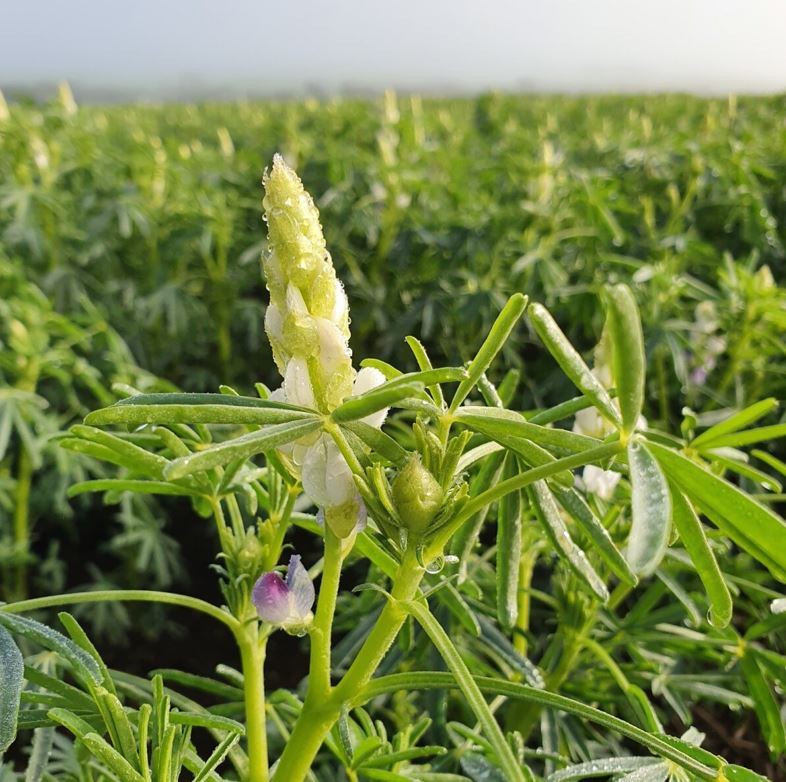
Currently, lupin is primarily resigned to stockfeed – but that’s changing.
The result is Dirty Clean Food – WOA’s retail brand distributing premium beef, lamb, poultry, and pantry staples through grocery stores, restaurants, and via an online direct-to-door service.
Providing premium supplier contracts to secure high-quality regenerative produce, and offering customers a “farmers market on your doorstep” experience, complete with stories from the producers, Dirty Clean Food wants to redefine conventional paradigms in the food supply chain.
Jay’s dream is a future where sustainability and exceptional products come together to shape a more resilient and mindful food system.
Just add lupin.
CSIRO, in collaboration with the Australian Department of Agriculture, Fisheries and Forestry (DAFF), are also holding an evokeAG. side event to discuss their co-created four future scenarios that reimagine the long-term future of farming systems in Australia by 2050. Join the discussion and on what farming systems could, should and need to look like to be profitable, productive and sustainable into the future. Register now.
To get involved in a CSIRO interactive session on Ag & Food Tech, join CSIRO at the Ritz-Carlton Hotel where DPIRD will also be hosting the WA Innovation and Sustainability Showcase. These free, interactive sessions are sideline events to evokeAG. 2024. Sessions will deep dive into the strategies WA producers and agribusinesses are using to meet growing global supply chain expectations – and how SME’s and startups can engage with CSIRO’s work in digital ag and food tech to accelerate their business. Register now.
